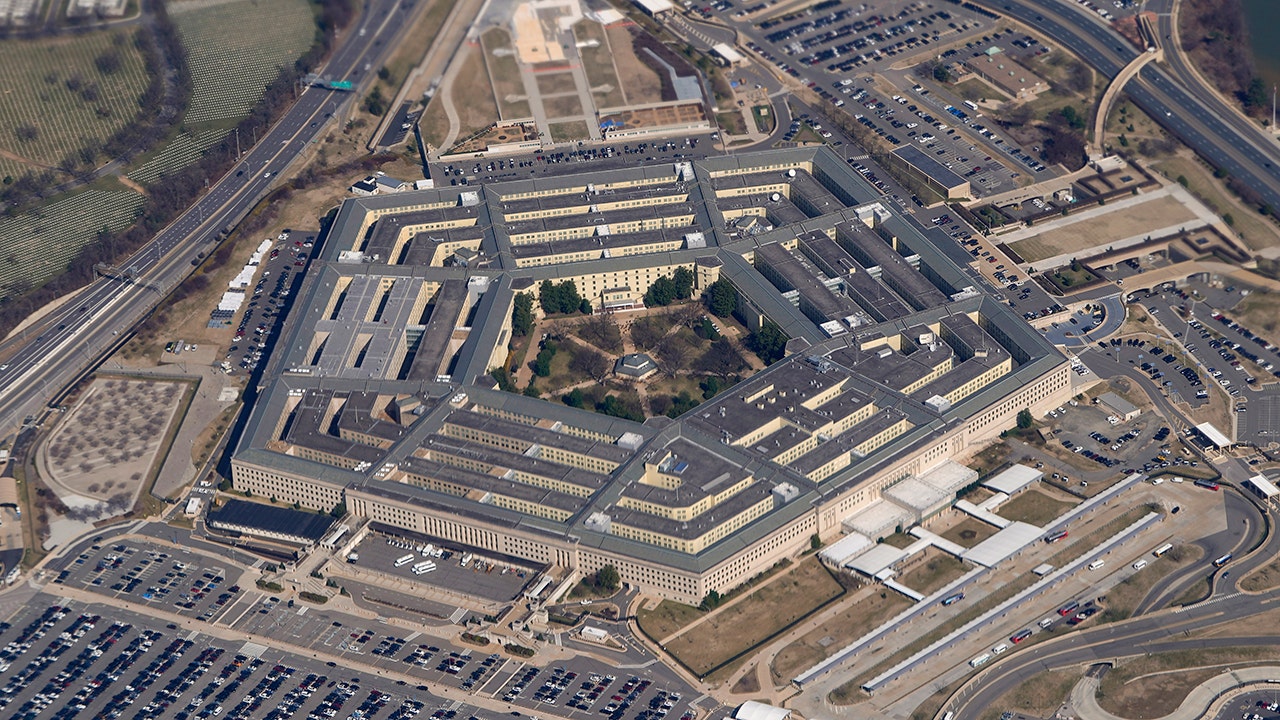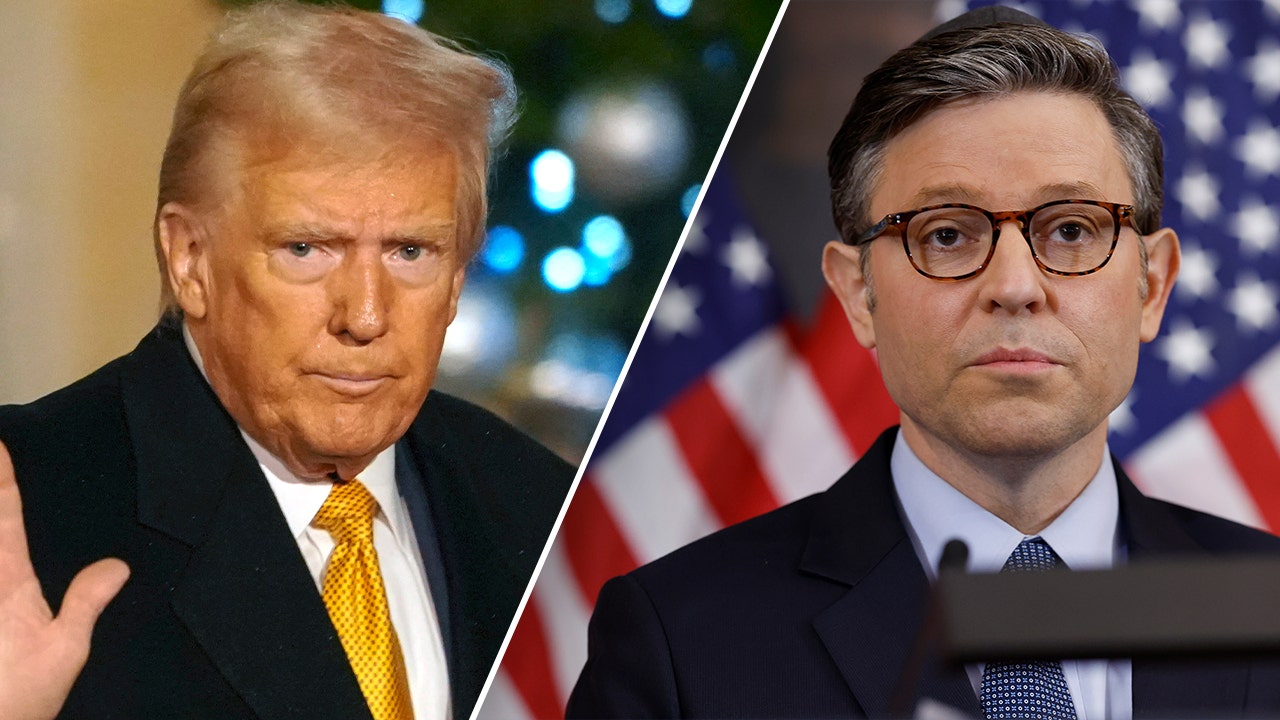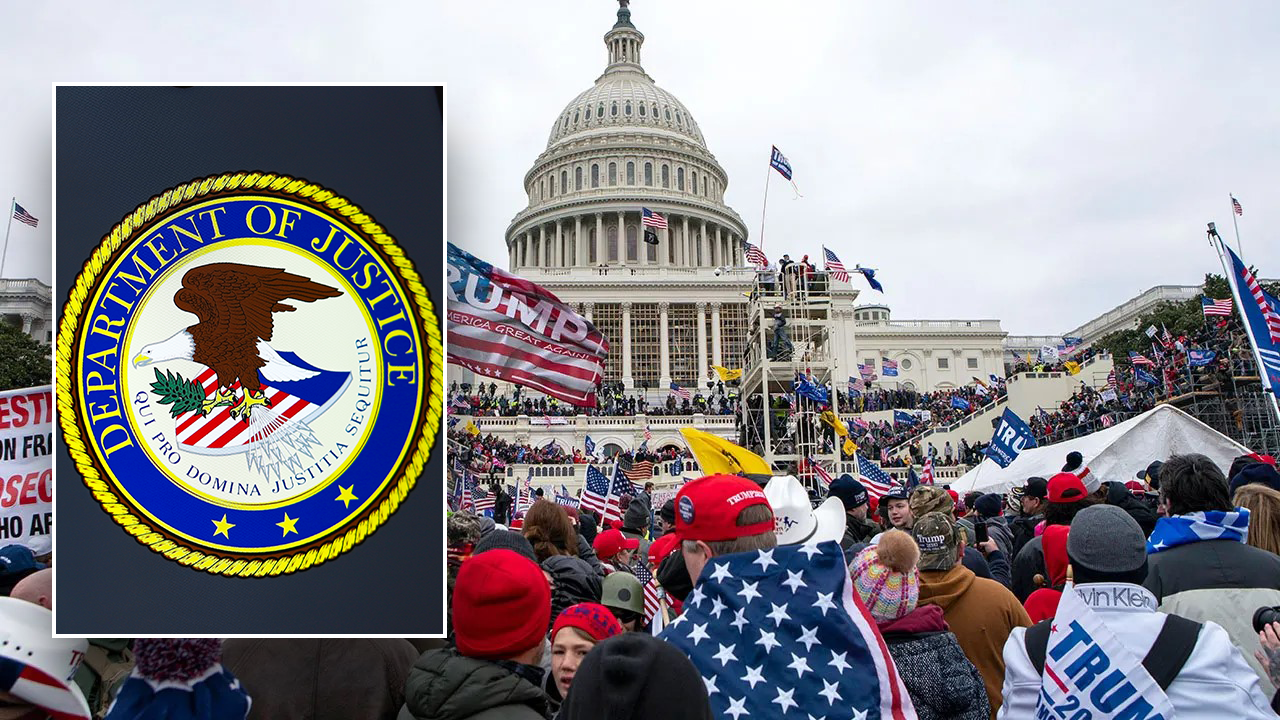New Jersey
States struggle with unreliable federal funding for making sure elections are secure • New Jersey Monitor

WASHINGTON — The federal government has sought to bolster election security for years through a popular grant program, but the wildly fluctuating funding levels have made it difficult for state officials to plan their budgets and their projects.
Rising misinformation and disinformation about elections, often fueled by conspiracy theories, as well as threats against election workers, make the grants especially important, according to elections officials.
But U.S. House Republicans are seeking to eliminate funding for election security grants — known as Help America Vote Act, or HAVA grants — in this year’s appropriations process, a move they unsuccessfully attempted last year as well.
“We continue to unnecessarily risk the very integrity of our elections and American democracy,” Georgia Democratic Rep. Sanford Bishop said Thursday during committee debate on the funding bill.
Bishop, a senior member of the House Appropriations Committee, said he was “concerned about the outdated and the insecure voting systems around the country that pose a very, very serious threat to our national security and to our democratic system.”
“It is irresponsible to ignore the wake-up call,” Bishop added. “Our nation’s election systems are currently and constantly under attack by foreign actors that are threatening our democratic values.”
The bill was approved by the GOP-led House Appropriations Committee with no money in it for the grants.
Gideon Cohn-Postar, legislative director at Issue One & Issue One Action, said during an interview with States Newsroom that while the grants have traditionally been bipartisan, several factors have affected backing for the program in recent years.
“It remains something that many Republicans in both the House and the Senate support,” Cohn-Postar said. “But it’s also been caught up, I think, in some of the false information about elections that began to spread in 2020.”
Former President Donald Trump, now the presumptive Republican presidential nominee, has continued to falsely claim that the 2020 election was stolen.
Issue One writes on its website that the organization strives to “unite Republicans, Democrats, and independents in the movement to fix our broken political system and build an inclusive democracy that works for everyone”.
Grant funding decreases
Congress approved $55 million in election security grants during the last appropriations process, which wrapped up this spring. That action came after the Republican-controlled House, which proposed zero dollars, conferenced with the Democratic-controlled Senate, which had proposed $75 million in funding.
That final funding level was a decrease from the $75 million that Congress approved in both fiscal 2023 and fiscal 2022.
Congress didn’t approve any election grant funding in the annual appropriations bill during fiscal year 2021. However, that followed lawmakers’ allocation of $425 million in the prior year’s bill as well as an additional $400 million in one of the COVID-19 emergency spending bills.
Cohn-Postar said that several states have sought to make their HAVA grants last more than one year by spending less than they receive, or saving the money up for bigger projects.
Louisiana, for example, hasn’t spent any of its election security grant funding since 2018, in preparation for overhauling its election system. New Hampshire passed a state law that collects the grant funding in an endowment and then only spends a portion of that each year.
But that “careful” budgeting and uncertainty about how much grant funding Congress might provide in the next year has led federal lawmakers to look at states’ use of the grants skeptically, Cohn-Postar said.
“The key thing we’ve come across … is about half of the states have only spent about half of their HAVA grants,” Cohn-Postar said. “And that gets brought up in every conversation that Congress has about these grants. They say, ‘Hey, why should we appropriate more if you haven’t spent?’”
Congress, he said, sometimes uses states’ “careful, thoughtful budgeting as an excuse to not give them money.”
Republicans in Congress are also looking to reduce federal spending overall and have made cuts throughout many of the dozen annual spending bills, including the Financial Services bill, which includes the HAVA grants.
‘Incredibly important’ in Maine
Maine Secretary of State Shenna Bellows said during an interview the grants “have been incredibly important, especially in the absence of sustainable elections funding from the federal government.”
“We have seen the rapid evolution of cybersecurity threats and threats against election infrastructure over the last several years,” Bellows said. “As the threats evolve, so must our preparedness. The election security grants are fundamental to our ability to make investments in improvements in our central voter registration system and cybersecurity protections for that system.”
Congress’ inability or unwillingness to create a predictable, stable funding program for states to administer federal elections is “unfortunate,” she said.
“We are very proud that Maine has always enjoyed safe, free and secure elections,” Bellows said. “But make no mistake, the lack of sustainable ongoing federal funding is a potential vulnerability in the future.”
Washington state Elections Director Stuart Holmes said in an interview he plans his annual budget around not getting HAVA election security grants and is pleasantly surprised when Congress does provide the funding.
“Through my entire career, there’s only been two rounds of HAVA that were significant investments into elections,” Holmes said. “So it’s a great surprise to get an extra million dollars at the beginning of the year. But it does make it pretty much impossible to prepare and plan for anything if you have to spend it.”
The grants don’t expire at the end of the fiscal year and the federal government doesn’t claw back unspent funding, allowing the states to take different approaches to how they use the money.
Holmes said during his interview with States Newsroom that the funding approved in fiscal 2020 allowed the state to “create an entire team of cybersecurity professionals to be dedicated to protecting our infrastructure.”
“In the state of Washington, we have a centralized voter registration and election management system, and never before had we had dedicated election professionals that are watching the logs, preparing our system, testing our system and collaborating with other professionals to do testing,” Holmes said. “So we’re in a better position than we’ve ever been.”
Even so, he said, “local election officials would certainly look forward to a stable funding source from the federal government as it relates to federal elections.”
New Hampshire election fund
New Hampshire Secretary of State David M. Scanlan said when Congress passed the HAVA program in 2002, it told states the funding was primarily to set up a statewide voter registration database, ensure every polling place had accessible voting equipment, provide poll workers with training and set up voter education programs.
The New Hampshire Legislature at the time told the secretary of state to use the initial allocation from Congress to meet the requirements, but then to establish an election fund with the remaining money.
Originally, the secretary of state could use one-twentieth of the total funding in the account for annual costs of maintaining the federal mandates, but that is currently one-twelfth of the total amount in the fund.
“New Hampshire has been doing a good job with the money that we have, but there’s no question that the funds have helped us put in place security measures for our electronic systems,” Scanlan said.
The state, he said, has used its federal election security grants to hire vendors that specialize in keeping the electronic systems safe.
When New Hampshire set up a new voter registration database, the state used the funding to ensure none of the software included anything nefarious.
“We’ve really been making sure that the systems that we’re building are clean and that there’s not something malicious lurking in the shadows,” Scanlan said. “We’ve taken some really good steps that give me real confidence that our systems are in good shape.”
Advocating for ‘consistent, reliable federal funding’
JP Martin, deputy communications director for the Arizona secretary of state, declined States Newsroom’s request for an interview with the secretary of state, offering only to provide written responses to questions on HAVA election security grants.
Martin wrote in an email that “fluctuating levels of federal funding have significantly impacted our strategic planning and budgeting.”
“The uncertainty of future allocations compels us to be cautious with expenditures, focusing on priorities such as enhancing physical security measures for voting equipment,” Martin wrote. “For instance, securing equipment in cages—now requires a liftgate-equipped truck due to their increased weight—demonstrates the challenges of managing technological and budgetary constraints under limited HAVA funding.”
Congress declining to provide election security grants in the future “could significantly strain Arizona’s election infrastructure,” he wrote.
“Currently, the state is under a hiring freeze, and our focus remains on supporting counties, especially with the recent changes such as the date of the primary and legislation extending ballot curing to weekends,” Martin wrote. “We are prioritizing increased cybersecurity training and advocating for consistent, reliable federal funding to ensure the smooth administration of elections, emphasizing the necessity of sustained financial support from Congress.”

New Jersey
Exclusive: Video shows emergency response to deadly train collision in New Jersey

Thursday, December 19, 2024 10:44PM
Dan Krauth has more on the emergency response.
BURLINGTON COUNTY, New Jersey (WABC) — An exclusive video obtained by Eyewitness News shows the emergency response to a large train collision in New Jersey in October.
A NJ Transit train hit a tree on the tacks, killing the train operator and injuring 23 others.
For the first time, we are seeing the emergency response to what happened.

The train was about 10 miles south of Trenton when it stuck a large tree.
What happened after was captured on police body camera video.
It shows what officers from Mansfield Township first encountered when they arrived on the scene on October 14th.
———-
DO YOU NEED A STORY INVESTIGATED? Dan Krauth, Kristin Thorne, and the 7 On Your Side Investigates team at Eyewitness News want to hear from you! Call our confidential tip line 1-877-TIP-NEWS (847-6397) or fill out the form BELOW.
Copyright © 2024 WABC-TV. All Rights Reserved.
New Jersey
Drones banned in parts of New Jersey for one month unless issued permission

The Federal Aviation Administration has issued a one-month ban on drone operations in certain areas of New Jersey, unless operators receive special permission from the government due to “special security reasons”.
This comes as dozens of night-time drone sightings have been reported across New Jersey and other states along the eastern coast of the US over the last several weeks.
The sightings have occurred in residential areas as well as near a military research and manufacturing facility, causing panic among local residents and sparking various conspiracy theories about their origins.
The FBI, Department of Homeland security, and other government agencies and officials have repeatedly said that there is no evidence of a threat to public safety.
On Wednesday, the FAA implemented temporary flight restrictions prohibiting drones that have not been authorized by the government in parts of New Jersey. The ban will remain in effect until 17 January and is in effect for areas including Bridgewater, Cedar Grove, North Brunswick, Metuchen, Evesham, Elizabeth, Jersey City and more.
The restrictions state that no unmanned aircraft systems (UAS) are allowed to operate within one nautical mile of the specified airspace, including from the ground up to 400ft above ground level.
Pilots who do not comply with these restrictions may be intercepted, detained, and questioned by law enforcement or security personnel, according to the Notice to Air Mission statement.
The government may also use “deadly force” against the drones if they pose an “imminent security threat” it adds.
Since reports of drones started coming in, the FBI set up a hotline to address the drone sightings, and have said that they are looking into and investigating the reports.
Federal agencies also deployed advanced detection technology to the regions where the drones are being spotted as well as trained visual observers.
Of the over 5,000 reported sightings so far, about 100 required further investigation, the federal bureau said. A Department of Homeland Security official echoed previous statements from federal agencies, stating again this week that there is no evidence of a threat to public safety.
On Tuesday, the FBI, Department of Homeland Security, Department of Defense, and Federal Aviation Administration issued a joint statement, stating that after examining “the technical data and tips from concerned citizens” they “assess that the sightings to date include a combination of lawful commercial drones, hobbyist drones, and law enforcement drones, as well as manned fixed-wing aircraft, helicopters, and stars mistakenly reported as drones”.
The agencies noted there are over one million drones registered with the FAA in the US, and that thousands of commercial, hobbyist and law enforcement drones fly in the sky lawfully on any given day.
“We have not identified anything anomalous and do not assess the activity to date to present a national security or public safety risk over the civilian airspace in New Jersey or other states in the northeast,” the statement reads.
The agencies also addressed concerns about drone sightings over military facilities, including restricted airspace, which have sparked local worries and stirred up conspiracy theories online.
“Such sightings near or over DoD installations are not new” the agencies said. “DoD takes unauthorized access over its airspace seriously and coordinates closely with federal, state, and local law enforcement authorities, as appropriate.”
“Local commanders are actively engaged to ensure there are appropriate detection and mitigation measures in place,” they stated.
The agencies acknowledged community concerns about drone sightings and pledged to continue to support state and local authorities “with advanced detection technology and support of law enforcement”.
They also urged Congress to enact counter-drone legislation that would “extend and expand existing counter-drone authorities to identify and mitigate any threat that may emerge”.
On Wednesday, the US Senate reportedly rejected a proposal to fast-track a bill, supported by Chuck Schumer, the Democratic Senate majority leader, and others, that Schumer says would expand government authority to conduct drone detection among other things.
Republican Senator Rand Paul blocked the measure, Reuters reported, arguing it would give the government excessive surveillance power and that Congress should not rush into legislation.
This week, Joe Biden addressed public concerns regarding the increase in reports of sightings of drones and other aerial objects in the skies, stating that there was nothing alarming about the increased reports.
“Nothing nefarious apparently, but they’re checking it all out,” the president told reporters. “We’re following this closely, but so far, no sense of danger.”
John Kirby, the White House national security communications adviser, has also said that the drones are not a national security or public safety risk.
New Jersey
2 porch pirates caught twerking on doorbell camera in New Jersey

Watch CBS News
Be the first to know
Get browser notifications for breaking news, live events, and exclusive reporting.
-

 Politics6 days ago
Politics6 days agoCanadian premier threatens to cut off energy imports to US if Trump imposes tariff on country
-
/cdn.vox-cdn.com/uploads/chorus_asset/file/25782636/247422_ChatGPT_anniversary_CVirginia.jpg)
/cdn.vox-cdn.com/uploads/chorus_asset/file/25782636/247422_ChatGPT_anniversary_CVirginia.jpg) Technology1 week ago
Technology1 week agoInside the launch — and future — of ChatGPT
-
/cdn.vox-cdn.com/uploads/chorus_asset/file/25789444/1258459915.jpg)
/cdn.vox-cdn.com/uploads/chorus_asset/file/25789444/1258459915.jpg) Technology6 days ago
Technology6 days agoOpenAI cofounder Ilya Sutskever says the way AI is built is about to change
-

 Politics6 days ago
Politics6 days agoU.S. Supreme Court will decide if oil industry may sue to block California's zero-emissions goal
-
/cdn.vox-cdn.com/uploads/chorus_asset/file/25546252/STK169_Mark_Zuckerburg_CVIRGINIA_D.jpg)
/cdn.vox-cdn.com/uploads/chorus_asset/file/25546252/STK169_Mark_Zuckerburg_CVIRGINIA_D.jpg) Technology6 days ago
Technology6 days agoMeta asks the US government to block OpenAI’s switch to a for-profit
-

 Politics1 week ago
Politics1 week agoConservative group debuts major ad buy in key senators' states as 'soft appeal' for Hegseth, Gabbard, Patel
-

 Business4 days ago
Business4 days agoFreddie Freeman's World Series walk-off grand slam baseball sells at auction for $1.56 million
-
/cdn.vox-cdn.com/uploads/chorus_asset/file/23951353/STK043_VRG_Illo_N_Barclay_3_Meta.jpg)
/cdn.vox-cdn.com/uploads/chorus_asset/file/23951353/STK043_VRG_Illo_N_Barclay_3_Meta.jpg) Technology4 days ago
Technology4 days agoMeta’s Instagram boss: who posted something matters more in the AI age




/cdn.vox-cdn.com/uploads/chorus_asset/file/25728924/STK133_BLUESKY__B.jpg)










